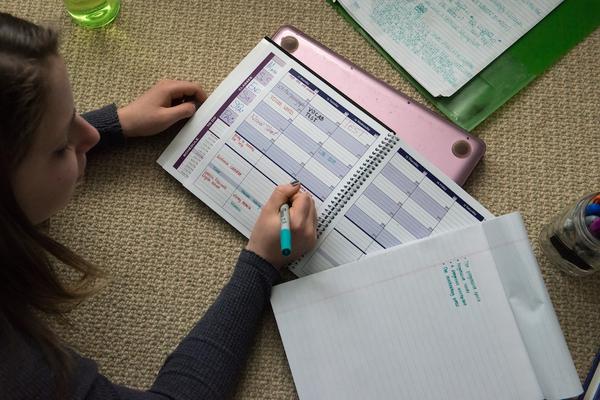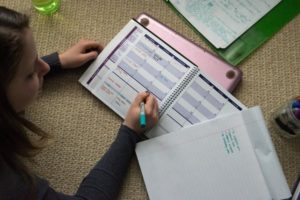27 Ways a Tutor Could Help Right Now

It is no easy task to juggle classes, practices, exams, tournaments, and travel schedules. In fact, it can be completely daunting and overwhelming, which is why many student athletes wind up being less productive than they could be. You have probably already heard to use a planner, but it’s really not very helpful unless you are using a planner effectively. Here are some suggestions for how to make the planner your best friend.
- Choose a planner that has enough space for you to write everything you need. Some planners have such tiny spaces that you can’t fit everything in, and sometimes you can’t even read what you were able to write.
- Look at your month. What days will you be out of town? When are important tests and projects due? When are tournaments or games? Get a good feel for the big picture.
- Look at your week. Assess and mark your time in the week. What time is already committed for classes, practices, meals, personal time, or a job? Where are the chunks of time that are left? Those chunks are going to be like gold for you, so make sure you find them.
- Look at your day. What do you need to do today? Identify your five Most Important Things (MITs). You can have more than five things, but the MITs should be marked. They are your priorities. The other things can get transferred to the next day if you didn’t get to them.
- Cross tasks off your list as you finish them. It is rewarding and gratifying to see your accomplishments from the day, so make sure do this simple thing.
- Try breaking your day into 15 or 30-minute intervals rather than hours. This is much less overwhelming, and it helps you use the smaller chunks of time that might not get used otherwise.
- Work backwards. If you know that you have a test on Friday, but Tuesday and Thursday evenings are full, then you know that you need to start preparing early so that you can study and review on Wednesday.
- Plan for the golden chunks of time. The time between practice and dinner can be easily wasted if you haven’t thought to bring your books with you ahead of time.
- Estimate how much time you think that a task will take. Write it down next to the task, and then see how close you were. The biggest reason that students do not get everything finished is that they didn’t think a task would take as long as it did, and they ran out of time. Work to get your estimates closer to reality.
- Do not plan for more than 2 hours on any one course. The ability to retain information starts to decrease after you’ve spent more than 2 hours on a subject. Schedule accordingly so that you don’t waste valuable study time.
- Plan time to sleep at night. You are taxing your body physically and mentally each day, and your body needs rest. Be intentional about making this time happen.
- Keep your planner with you all the time so that you can write things down before you forget them. Even if you don’t become best friends, your planner will certainly be a huge asset if you learn to use it effectively!
Related posts







